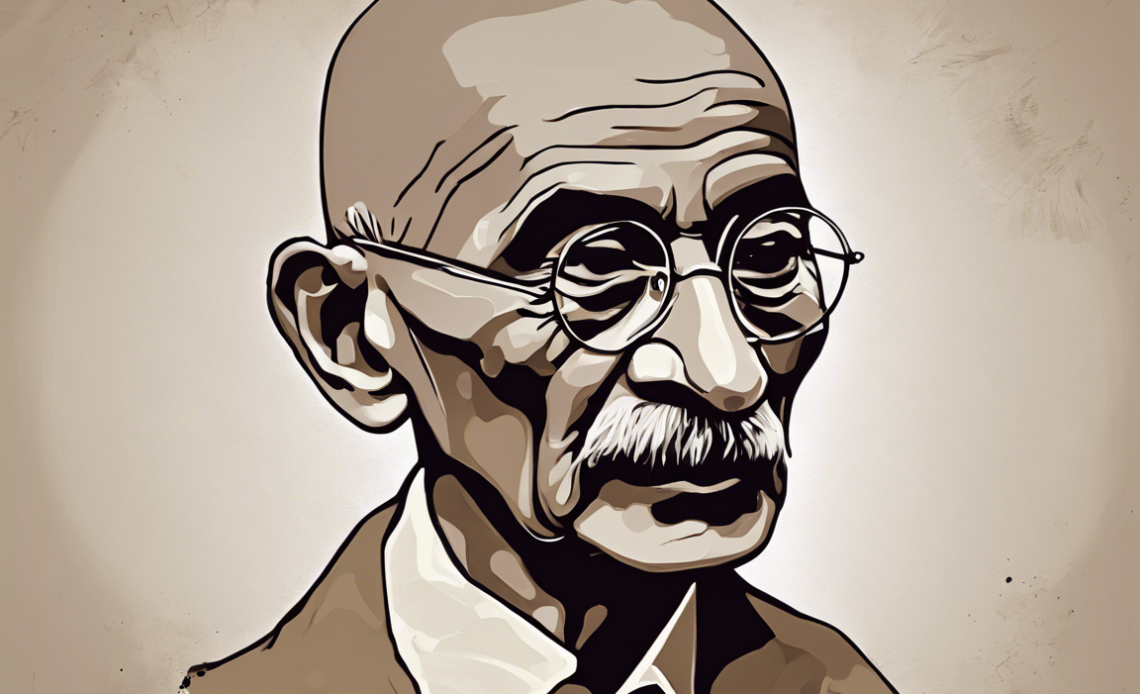
On January 30, 1948, Mahatma Gandhi, the Father of the Indian nation, was assassinated in New Delhi by Nathuram Godse, a Hindu nationalist who opposed Gandhi’s philosophy of non-violence. This tragic event sent shockwaves not only through India but across the world. The assassination of Gandhi remains one of the most significant and studied political murders in modern history.
The Life and Legacy of Mahatma Gandhi
Mohandas Karamchand Gandhi was born on October 2, 1869, in Porbandar, India. He studied law in London and went on to become a prominent leader in the Indian independence movement against British colonial rule. Gandhi is known for his commitment to Ahimsa (non-violence) and Satyagraha (resistance to oppression through mass civil disobedience). His philosophy and leadership played a crucial role in India’s eventual independence in 1947.
Gandhi’s legacy extends far beyond the realm of politics. He advocated for Swadeshi (self-reliance), Sarvodaya (upliftment of all), and Gram Swaraj (village self-governance). His values of simplicity, truth, and non-violence inspired movements for civil rights and freedom across the globe, most notably in the United States through figures like Martin Luther King Jr.
The Assassination Plot
Nathuram Godse, a member of the Hindu nationalist group Rashtriya Swayamsevak Sangh (RSS), believed that Gandhi was too accommodating to Muslims during the partition of India. Godse and his co-conspirators saw Gandhi’s actions as detrimental to Hindu interests and decided to eliminate him. On January 30, 1948, as Gandhi was on his way to a prayer meeting, Godse shot him three times at point-blank range.
The assassination shocked the world and led to widespread condemnation. Godse and his co-conspirator Narayan Apte were arrested and put on trial. They were eventually convicted and sentenced to death. Despite appeals for clemency, both Godse and Apte were executed on November 15, 1949.
Impact on India and the World
The assassination of Mahatma Gandhi had a profound impact on India and the world at large. In India, the loss of Gandhi was felt deeply, with millions mourning the death of their beloved leader. The event also highlighted the tensions and divisions that existed within Indian society, particularly between Hindus and Muslims.
Internationally, Gandhi’s assassination brought attention to the power of non-violent resistance and the risks faced by those who challenge entrenched interests. Leaders around the world condemned the act and reaffirmed their commitment to Gandhi’s principles of peace and non-violence.
Conspiracy Theories and Controversies
Over the years, there have been various conspiracy theories surrounding the assassination of Mahatma Gandhi. Some have suggested that there was a larger conspiracy involving political elements seeking to eliminate Gandhi as a threat to their power. Others have raised questions about the role of the authorities in failing to protect Gandhi despite knowing about potential threats to his life.
Despite these theories, the official version of events remains that Nathuram Godse acted alone in assassinating Gandhi. The Indian government has upheld this narrative, emphasizing the role of Godse as a disgruntled individual rather than part of a larger conspiracy.
Gandhi’s Enduring Legacy
More than seven decades after his death, Mahatma Gandhi’s legacy continues to resonate with people around the world. His teachings on non-violence, civil disobedience, and the power of truth and simplicity are as relevant today as they were during his lifetime. Gandhi’s message of peace, tolerance, and equality serves as a guiding light in a world still rife with conflict and injustice.
In a time when violence and division seem to dominate the headlines, the life and death of Mahatma Gandhi remind us of the enduring power of love and compassion. As we reflect on his assassination, let us not just mourn the loss of a great leader but also recommit ourselves to the ideals that he lived and died for.
Frequently Asked Questions (FAQs)
- Why was Mahatma Gandhi assassinated?
-
Mahatma Gandhi was assassinated by Nathuram Godse, a Hindu nationalist who believed that Gandhi’s actions were detrimental to Hindu interests during the partition of India.
-
What were Gandhi’s core beliefs?
-
Gandhi believed in non-violence (Ahimsa), truth (Satyagraha), self-reliance (Swadeshi), upliftment of all (Sarvodaya), and village self-governance (Gram Swaraj).
-
Was there a larger conspiracy behind Gandhi’s assassination?
-
While conspiracy theories exist, the official version of events maintains that Nathuram Godse acted alone in assassinating Mahatma Gandhi.
-
How did Gandhi’s assassination impact India and the world?
-
Gandhi’s assassination had a profound impact, leading to widespread mourning in India and reaffirming the commitment to his principles of peace and non-violence globally.
-
What is Mahatma Gandhi’s legacy?
- Gandhi’s legacy includes his teachings on non-violence, civil disobedience, and his message of peace, tolerance, and equality that continue to inspire people worldwide.

